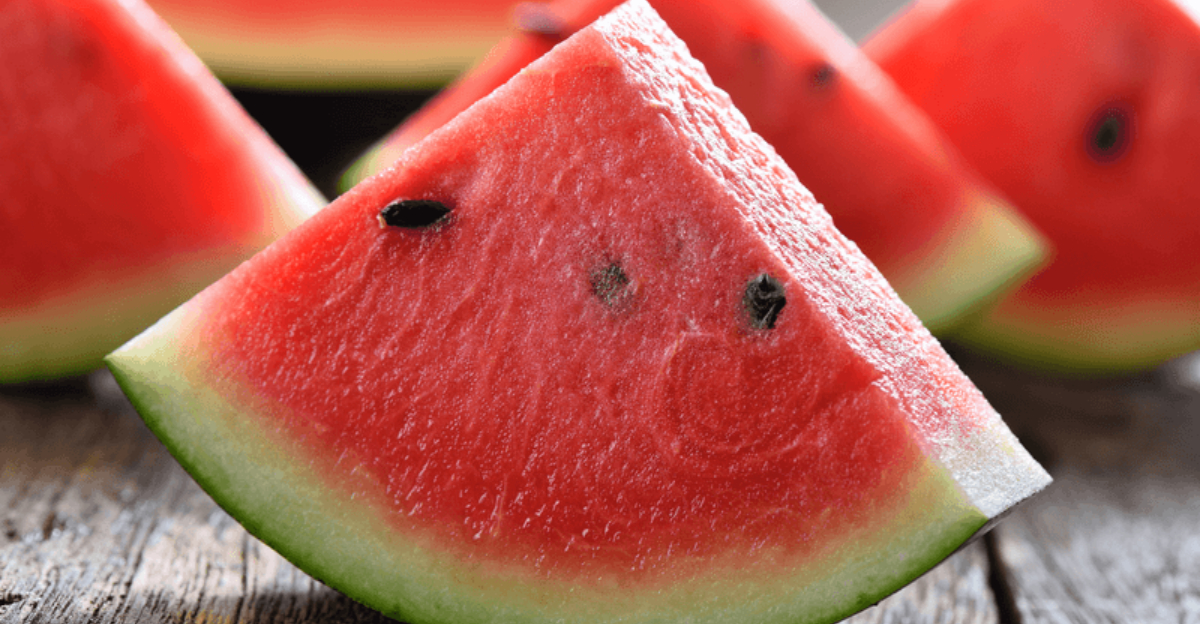Experts Explain Whether Watermelon Seeds Are Actually Dangerous Or Not

As a child, I panicked whenever I accidentally swallowed a watermelon seed, fully convinced that a watermelon would eventually sprout in my stomach. My grandmother would laugh and insist that there was no danger, yet I remained fearful for many years.
Now, as an adult who adores summer fruits, I decided to investigate the facts and learn what experts have to say about these tiny black seeds. Are they genuinely harmful, or have we been exaggerating their dangers all this time?
According to current scientific research, these seeds are harmless and rarely cause any adverse health effects, leaving little reason for the old anxiety. Thus, past fears are completely unfounded.
1. Your Stomach Acid is a Seed-Destroying Machine
Gastroenterologists love debunking the childhood myth about seeds growing in your belly. Your stomach produces hydrochloric acid so powerful it could dissolve metal, making it virtually impossible for any seed to survive, let alone germinate.
Dr. Sarah Mitchell from Johns Hopkins explains that stomach acid has a pH between 1.5 and 3.5. This acidic environment breaks down proteins and kills bacteria, so a tiny watermelon seed doesn’t stand a chance.
Even if somehow a seed survived your stomach, your intestines lack sunlight, soil, and proper growing conditions. Your digestive system is designed to eliminate waste, not nurture plant life!
2. Seeds Actually Pack Surprising Nutritional Benefits
Nutritionists are flipping the script on watermelon seeds entirely. Instead of avoiding them, many cultures actively consume these nutritional powerhouses for their health benefits.
Each seed contains protein, healthy fats, magnesium, and zinc. In many African and Middle Eastern countries, roasted watermelon seeds are popular snacks, similar to sunflower seeds in America.
Registered dietitian Lisa Chen notes that 100 grams of watermelon seeds provide about 30 grams of protein. That’s more protein per serving than most nuts! The seeds also contain folate, which supports healthy cell division and DNA synthesis.
3. Choking Hazards Are the Real Concern for Toddlers
Pediatricians focus on legitimate safety concerns rather than mythical stomach gardens. The actual risk with watermelon seeds involves choking, particularly for children under three years old.
Dr. Amanda Rodriguez, a pediatric emergency physician, explains that small, hard objects like seeds can become lodged in young children’s airways. Their windpipes are roughly the diameter of a drinking straw.
Parents should remove seeds when serving watermelon to toddlers, not because of digestion fears, but due to genuine choking risks. Once kids develop proper chewing skills around age four, accidental seed swallowing becomes harmless.
4. Digestive Systems Handle Seeds Like Champions
Gastroenterologists frequently reassure patients that human digestive systems evolved to process various plant materials, including seeds. Our ancestors consumed countless seeds throughout history without issues.
The human gut contains specialized enzymes and beneficial bacteria designed to break down cellulose and other plant compounds. Most seeds pass through completely undigested within 24-72 hours.
Dr. Michael Thompson from the American Gastroenterological Association states that unless someone has specific digestive disorders like Crohn’s disease, seed consumption poses no significant health risks. Your body treats them like any other indigestible fiber.
5. Seed Phobia Stems from Old Wives’ Tales
Psychologists studying food phobias trace watermelon seed fears back to well-meaning but scientifically inaccurate folklore. These myths likely originated from misunderstanding plant biology and human anatomy.
Cultural anthropologist Dr. Rebecca Williams notes that many societies developed similar myths about swallowing seeds. These stories served as cautionary tales to encourage careful eating, but lacked scientific basis.
Modern anxiety around seed consumption often reflects broader patterns of food-related fears. Cognitive behavioral therapists help patients overcome these irrational worries by providing factual information about digestion and plant growth requirements.
6. Traditional Medicine Embraces Watermelon Seeds
Ethnobotanists document extensive use of watermelon seeds in traditional healing systems worldwide. Chinese medicine practitioners have prescribed them for kidney health for over 1,000 years.
Traditional healers in Nigeria create seed-based remedies for parasites and digestive issues. Indian Ayurvedic medicine uses ground watermelon seeds to support urinary tract function and reduce inflammation.
Dr. James Liu, who studies traditional Chinese medicine, explains that watermelon seeds contain compounds that may support kidney function. While more research is needed, centuries of traditional use suggest safety rather than danger.
7. Agricultural Experts Confirm Seeds Need Specific Conditions
Botanists laugh at the idea of seeds sprouting inside human bodies. Plant germination requires precise environmental conditions that simply don’t exist in digestive systems.
Seeds need adequate moisture, oxygen, proper temperature, and light exposure to begin growing. The human stomach and intestines provide none of these requirements for successful germination.
Agricultural scientist Dr. Patricia Green explains that even under ideal greenhouse conditions, watermelon seeds require careful temperature control and specific soil pH levels. The acidic, oxygen-poor environment of human digestion actually prevents any possibility of seed activation.
8. Emergency Room Doctors Rarely See Seed-Related Issues
Emergency physicians report that seed-related medical emergencies are extremely rare and typically involve choking rather than digestive complications. Most seed concerns are psychological rather than physical.
Dr. Kevin Martinez, who works in a busy urban emergency department, states that in fifteen years of practice, he’s never treated anyone for watermelon seed-related digestive problems.
Emergency medical literature contains virtually no documented cases of watermelon seeds causing internal harm. When patients do seek treatment for seed anxiety, doctors typically provide reassurance and education rather than medical intervention.
